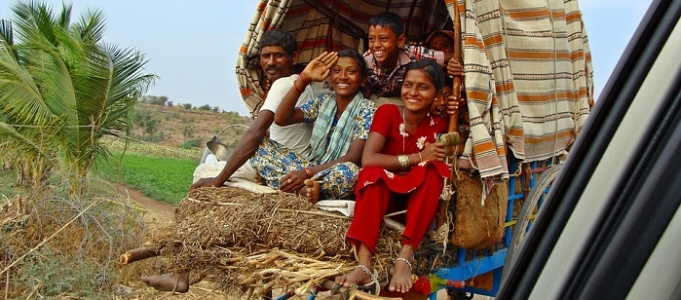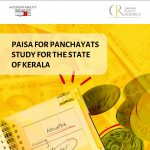
Making the choice of becoming an IAS officer
20 April 2018
This blog is part of a series of conversations with young IAS officers, their motivations and their insights from working in the civil services.
Kiran Vaska is an IAS officer from the Madhya Pradesh cadre. Most recently, he was the Mission Director of the National Health Mission in Madhya Pradesh. He shares his experiences.

What motivated you to look at a career in bureaucracy?
Getting into the IAS was a childhood dream. The initial motivation I remember was from the stories my grandparents and parents told me praising the role collectors played in their times. But as I grew older and especially after a stint in the private sector, I realised that the best way to serve the country was by joining the civil services. The wide and varied experience the service, especially the IAS, offers is unparalleled. The positive impact one can bring in the lives of so many people right from the first day and every day in office is the biggest motivation.
What is a major challenge you have encountered while implementing the National Health Mission?
Apart from the ubiquitous challenge of shortage of trained personnel, the major challenge I encountered was to keep them motivated to provide quality services that in turn motivate citizens towards a health seeking behaviour.
Have you seen your department responding to development needs?
The department, I think, is continuously evolving to respond to development needs. This is being done by regular upgradation not only in the number of services but also in their quality. For example, programmes like Rashtriya Bal Swasthya Karyakram (RBSK) and focused approach towards Non-Communicable Diseases (NCD) is an effort of the department to respond to the emerging needs. RBSK expands the scope of child health from just reducing infant mortality to improving survival outcomes through early detection and management of disabilities, disorders, deficiencies and diseases. Similarly, an increasing focus on NCDs is a clear indication of responding to the emerging threat of lifestyle diseases such as diabetes and hypertension.
Can you share one memory of the field which touched you?
There were many such moments, but the one I cherish the most is the support we got for the programme to train students from weak socio-economic backgrounds in the district for engineering and medical entrance exams. Not only did a large number of teachers volunteer to work extra hours but also many from the general public volunteered to teach these students,. The programme was a great success and many children from the backward areas of the district were admitted into IITs, NITs and other government medical colleges.
The first part of this blog series can be found here.
We want to hear from you! Write to us at [email protected] if you would like to share your experience of being an IAS officer.





